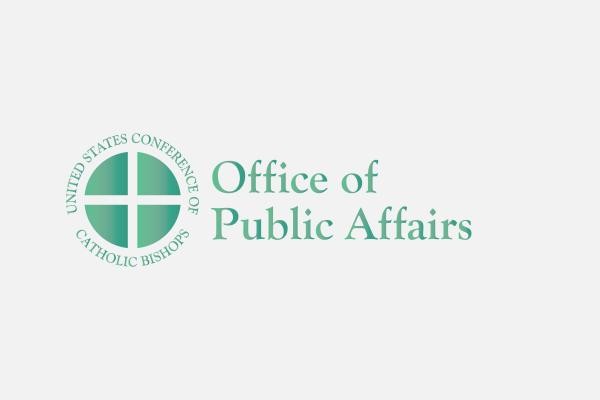U.S. Bishops Chairman Calls on U.S. Government to work with Burma, Bangladesh, and the International Community to Address Burma Refugee Crisis for Religious Minority
Washington—BishopJoe S. Vásquez of Austin, Texas, Chairman of theU.S. Conference of Catholic Bishops' Committee on Migration, submitted writtentestimony to the House Foreign Affairs Committee for a hearing on October 5,2017, entitled "The Rohingya Crisis: U.S. Response to the Tragedy in Burma.
Washington—BishopJoe S. Vásquez of Austin, Texas, Chairman of theU.S. Conference of Catholic Bishops' Committee on Migration, submitted writtentestimony to the House Foreign Affairs Committee for a hearing on October 5,2017, entitled "The Rohingya Crisis: U.S. Response to the Tragedy in Burma."The hearing addressed the U.S. government response to the plight of a Muslim religiousminority from Rakhine State, Burma, known as the Rohingya.
In part of his testimony, Bishop Vásquezstates, "We turn now to the grim situation of those forced to flee from RakhineState, Burma. Forced out by what the Burmese military reportedly has referredto as a 'clearance campaign,' an estimated 501,000 people have fled fromRakhine State, Burma, to Bangladesh since August 25, 2017. Most are women andchildren, and the most vulnerable are newborns, pregnant women, and theelderly. Many have only makeshift shelters at best, are struggling to find themere basics of life, and are trying to avoid debilitating and life-threatening waterborneand airborne diseases. They are all in our thoughts and prayers as the CatholicChurch joins with others to mobilize in response to the horrific situation."
The most recent violence is part of anhistorical pattern of persecution against the Muslim minority in Rakhine State,and also continues against other religious and ethnic minorities, such as aChristian ethnic minority group in Kachin State, Burma. While such persecutionhas lessened in recent years with democratic elections, the Burmese militarystill maintains substantial political power and economic control. Daw Aung SanSuu Kyi, human rights icon and the major democratic leader in Burma, has notbeen very vocal about the plight of those fleeing Rakhine State, but she hasplayed a major role in changing the day-to-day life for her people and continuesto lead a major peacebuilding effort with ethnic groups in Burma known as thePanglong Process to build a viable democratic federal system.
"As we shed light on the human rightstragedies in Burma, we urge continued U.S. support to resolve these criticalsituations and to support the democratically elected government in addressingthese situations while also supporting their broader efforts to build a new,democratic, inclusive Burma," notes Bishop Vásquez.
Bishop Vásquez's full testimony can be found at: https://justiceforimmigrants.org/statements/written-testimony-reverend-joe-s-vasquez-bishop-austin-texas-chair-u-s-conference-catholic-bishops-committee-migration-rohingya-crisis-u-s-response/.
---
Keywords: U.S. Conference of Catholic Bishops, USCCB, Bishop Joe S. Vasquez,Committee on Migration, House Foreign Affairs Committee, Rohingya, RakhineState, Burma, Bangladesh, refugee crisis, Muslim minority, Kachin State, DawAung San Suu Kyi, Panglong Process, refugee, protection, durable solutions.
###
Media Contact:
Judy Keane
202-541-3200

